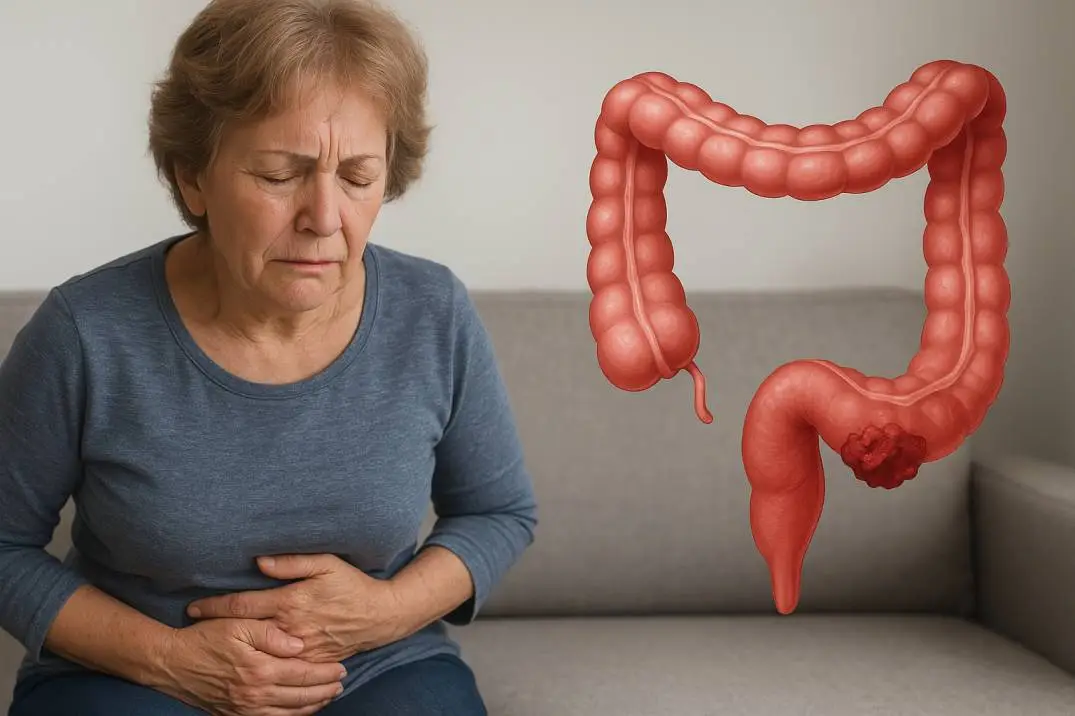Can Long-Term Constipation Cause Colon Cancer?
Constipation is a common issue that many people experience at some point in their lives. However, chronic or long-term constipation raises a lot of questions and concerns.
One frequently asked question is whether long-term constipation can lead to colon cancer. If you’re wondering about the connection, this detailed guide will break down the facts about constipation, its effects on the colon, and whether there’s any scientific evidence linking it to colon cancer.
We’ll also provide practical prevention tips and insights for maintaining colon health.

What Is Constipation?
Constipation refers to infrequent bowel movements or difficulty passing stool. While it’s normal for bowel habits to vary from person to person, constipation is usually defined as having fewer than three bowel movements per week. Other symptoms may include:
- Straining to pass stool
- Hard or lumpy stools
- A feeling of incomplete emptying after a bowel movement
- Bloating or abdominal discomfort
It’s important to note that occasional constipation is common and usually not a cause for concern. However, long-term or chronic constipation may require medical attention.
Causes of Constipation
Constipation can stem from various factors, including:
- Dietary Choices:
- A diet low in fiber and high in processed foods can slow down digestion.
- Dehydration:
- Not drinking enough water can make stools harder and more challenging to pass.
- Lack of Exercise:
- Physical inactivity can affect bowel motility, especially in individuals with sedentary lifestyles.
- Medications:
- Certain medications, like opioids, antidepressants, and antacids, can lead to constipation.
- Stress or Changes in Routine:
- Travel, emotional stress, or changes in daily habits can disrupt normal bowel movements.
- Medical Conditions:
- Conditions like irritable bowel syndrome (IBS), diabetes, or hypothyroidism can affect gut health and lead to constipation.
How Does Constipation Affect the Colon?
When you’re constipated, waste material builds up in the colon for an extended period. This can cause discomfort, straining, and occasional complications such as:
- Hemorrhoids:
- Swollen blood vessels around the rectum caused by excessive straining.
- Anal Fissures:
- Small tears in the lining of the anus due to passing hard stools.
- Fecal Impaction:
- A solid mass of stool that becomes lodged in the colon or rectum.
But what about more severe consequences, like an increased risk of colon cancer? To answer this, we need to examine the science.
Is There a Link Between Chronic Constipation and Colon Cancer?
⇒The Scientific Evidence
To date, there is no conclusive evidence proving that chronic constipation directly causes colon cancer. However, studies suggest a possible association, which means people with long-term constipation might have a slightly higher chance of developing colorectal issues, including cancer. This association is still under investigation, and here’s why it might exist:
- Prolonged Exposure to Waste:
- When stool remains in the colon for an extended period, it releases by-products like ammonia and bile acids. Some researchers have hypothesized that these substances could irritate the colon lining, potentially increasing cancer risk over time.
- Shared Risk Factors:
- Constipation and colon cancer share common risk factors such as a low-fiber diet, physical inactivity, and obesity. These factors might explain why people with chronic constipation appear to have a higher risk of colorectal cancer.
- Screening Disparities:
- Chronic constipation may delay individuals from seeking medical attention, which could unintentionally lead to late detection of colorectal cancer.
⇒Common Myths About Constipation and Colon Cancer
Myth 1: Toxins from Stool Cause Cancer
A common belief is that stool toxins absorbed by the body increase cancer risk. However, the colon is designed to handle waste and prevent harmful toxins from being absorbed into the bloodstream. There’s no direct evidence that this process leads to cancer.
Myth 2: All Constipation Leads to Cancer
While constipation can be uncomfortable and might contribute to complications like hemorrhoids, it doesn’t automatically lead to colon cancer. Cancer often arises from a combination of genetic, environmental, and dietary factors.
Myth 3: Laxative Use Prevents Cancer
There’s a misconception that frequent laxative use can reduce cancer risk by keeping the colon clean. However, overusing laxatives can harm your digestive system in the long term and does not guarantee cancer prevention.
What Are the Risk Factors for Colon Cancer?
Colon cancer is influenced by several factors that go beyond bowel habits:
- Age:
- Most cases occur in people over 50.
- Family History:
- A history of colorectal cancer in close relatives can increase your risk.
- Diet:
- High consumption of red meats, processed foods, and sugary items is associated with colorectal cancer.
- Lifestyle:
- Smoking, excessive alcohol consumption, and lack of physical activity are contributing factors.
- Chronic Conditions:
- Conditions like inflammatory bowel disease (IBD) or type 2 diabetes can elevate your risk.
Tips for Preventing Colon Cancer and Managing Constipation
While chronic constipation itself may not directly cause colon cancer, adopting healthy habits can reduce your overall cancer risk and improve digestive health. Here’s what you can do:
1. Eat a High-Fiber Diet
- Include plenty of fruits, vegetables, whole grains, and legumes in your meals. Aim for at least 25–30 grams of fiber daily to promote regular bowel movements.
2. Stay Hydrated
- Drink plenty of water throughout the day to keep stools soft and easy to pass.
3. Exercise Regularly
- Physical activity stimulates bowel movements. Aim for 30 minutes of exercise most days of the week.
4. Limit Red and Processed Meats
- Replace red meats with lean proteins like chicken, fish, or plant-based options.
5. Quit Smoking and Minimize Alcohol Intake
- Both smoking and drinking can increase your risk of colorectal cancer.
6. Listen to Your Body
- Don’t ignore persistent constipation or blood in your stool. These could be warning signs of a more serious condition.
7. Schedule Regular Screenings
- Colonoscopies and other screening methods can detect colon cancer or precancerous polyps early on, dramatically increasing the chances of successful treatment.
When to See a Doctor?
Seek medical advice if you experience any of the following symptoms:
- Persistent constipation lasting several weeks, despite lifestyle changes
- Blood in your stool
- Unexplained weight loss
- Severe abdominal pain or bloating
- Changes in bowel habits, such as diarrhea alternating with constipation
These symptoms should not be ignored, as they could indicate a more serious condition, including colorectal cancer.
Final Thoughts
Long-term constipation is uncomfortable and may raise questions about its connection to colon cancer.
While there’s no definitive proof that chronic constipation directly causes colon cancer, some shared risk factors and potential mechanisms suggest that managing your digestive health is crucial for overall well-being.
By making dietary and lifestyle changes, staying vigilant about your symptoms, and getting regular screenings, you can reduce your risk of colon cancer and improve your quality of life.
If you’re concerned about constipation or its potential impact on your health, don’t hesitate to consult a colon cancer specialist in pune.
Early intervention and informed choices play a vital role in maintaining a healthy digestive system and reducing cancer risks.

Dr. Aditya Kulkarni
MS, DNB, FRCS, MCh (Surgical Gastroenterology & GI Oncology)
Dr. Aditya Kulkarni is a Consultant of Laparoscopic and Robotic Gastrointestinal, Hepato-biliary-pancreatic, and Cancer Surgeon at the Renowned Oasis Surgery Clinic Pune.
